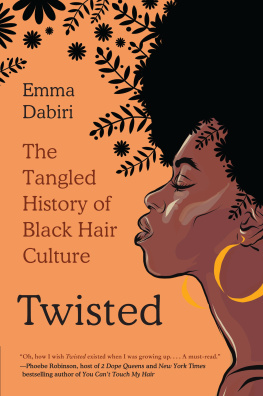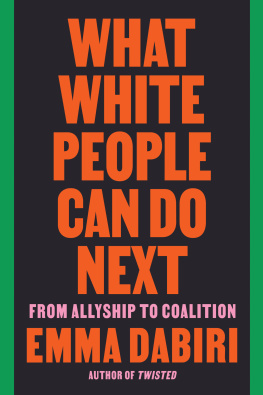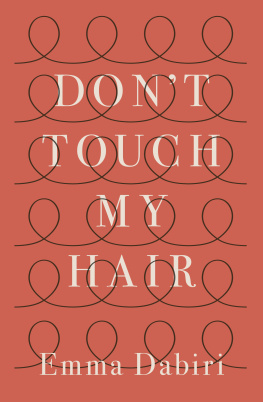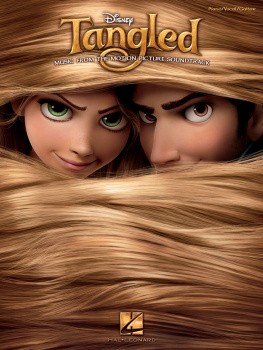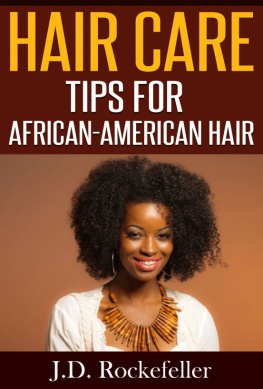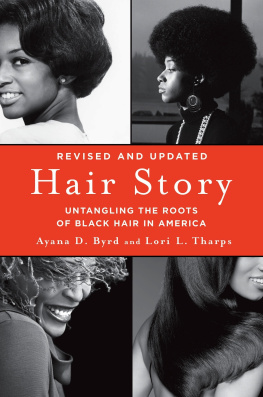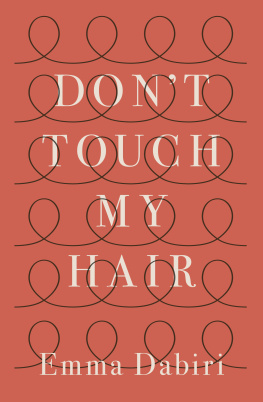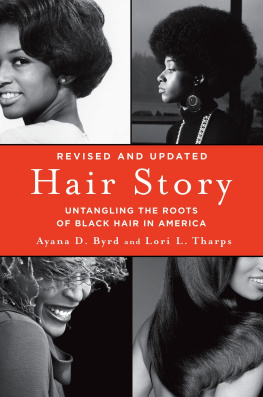Emma Dabiri - Twisted: The Tangled History of Black Hair Culture
Here you can read online Emma Dabiri - Twisted: The Tangled History of Black Hair Culture full text of the book (entire story) in english for free. Download pdf and epub, get meaning, cover and reviews about this ebook. year: 2020, publisher: HarperCollins, genre: Art. Description of the work, (preface) as well as reviews are available. Best literature library LitArk.com created for fans of good reading and offers a wide selection of genres:
Romance novel
Science fiction
Adventure
Detective
Science
History
Home and family
Prose
Art
Politics
Computer
Non-fiction
Religion
Business
Children
Humor
Choose a favorite category and find really read worthwhile books. Enjoy immersion in the world of imagination, feel the emotions of the characters or learn something new for yourself, make an fascinating discovery.
- Book:Twisted: The Tangled History of Black Hair Culture
- Author:
- Publisher:HarperCollins
- Genre:
- Year:2020
- Rating:5 / 5
- Favourites:Add to favourites
- Your mark:
- 100
- 1
- 2
- 3
- 4
- 5
Twisted: The Tangled History of Black Hair Culture: summary, description and annotation
We offer to read an annotation, description, summary or preface (depends on what the author of the book "Twisted: The Tangled History of Black Hair Culture" wrote himself). If you haven't found the necessary information about the book — write in the comments, we will try to find it.
Twisted: The Tangled History of Black Hair Culture — read online for free the complete book (whole text) full work
Below is the text of the book, divided by pages. System saving the place of the last page read, allows you to conveniently read the book "Twisted: The Tangled History of Black Hair Culture" online for free, without having to search again every time where you left off. Put a bookmark, and you can go to the page where you finished reading at any time.
Font size:
Interval:
Bookmark:
Contents
In honor of all the black brilliance and beauty,
squandered and diminished
yet never extinguished
Contents
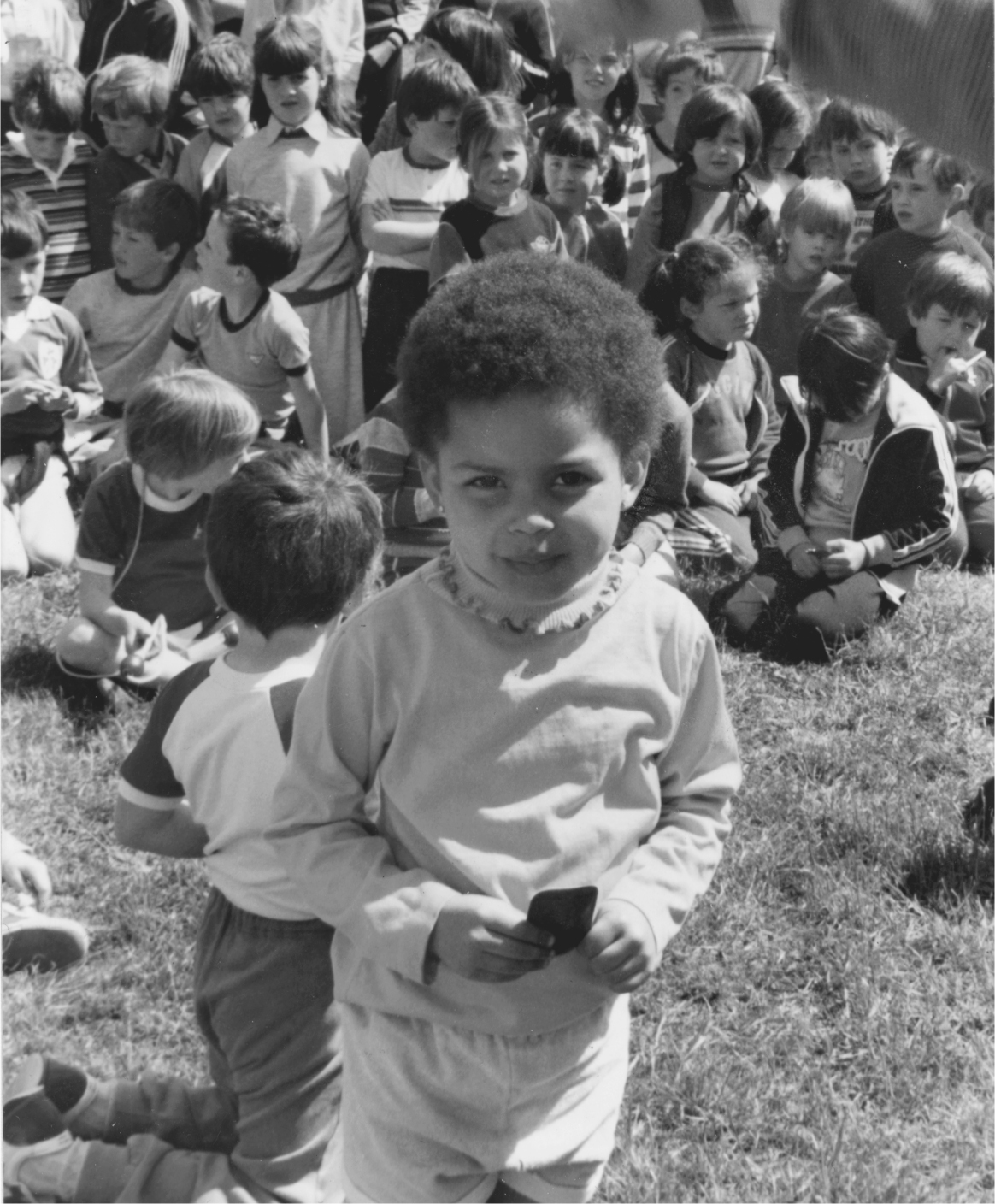
YOUNG, IRISH, AND BLACK
It is not from my mouth
It is not from the mouth of A
Who gave it to B
Who gave it to C
Who gave it to D
Who gave it to E
Who gave it to F
Who gave it to me.
May it be better in my mouth
Than in the mouth of my ancestors.
(West African poem)
The year I turned eight, the consumption of Christs body and blood became imminent. After months of deliberation, extravagant miniature bridal dresses had been bought; lace, satin, and net hung expectantly in wardrobes. The communion money, which could quite reasonably be expected to stretch into the hundredsa veritable fortune in 1980s inner-city Dublinwas the hot promise occupying everyones thoughts. After months of slaving over the catechism, of hard work and dutiful preparation, my peers were ready to make their first Holy Communion.
No catechism for this badman, though. I had elected not to take the sacrament. Young Emmas contribution, having reached the age of reason, was instead the production of a spiffy little anti-slavery pamphlet called Break the Chains. The length of a copybook, it was based on the story of Olaudah Equiano, the eighteenth-century abolitionist. The conclusion, I remember, attempted to locate the contemporary conditions of Black America in the brutal experiences Africans had endured in that land and sought to suggest solutions. Hence the title. Nice and light. Standard childhood fare.
While I wasnt particularly praised for my efforts, I certainly wasnt forced to join in with the other children either. With hindsight, this is telling, if unsurprising. There was always the insistence that, despite my being born in Ireland and having an Irish mother whose maternal ancestry stretches back into Irish prehistory, I wasnt really Irish. I was frequently singled out for special attention. I seemed to be a firm favorite of nuns, particularly those who had been missionaries in Africa. I remember on one occasion being apprehended outside the Bird Flanagan pub in Rialto and presented with a Miraculous Medal by a concerned nun who wished to bestow the grace of the Virgin Mary on my little brown body. It was not the only time I was presented with one of theseI seemed to be quite the miraculous magnet! And I remember visiting a friends elderly great-auntanother nunwhose watery eyes refocused then blazed upon sighting me. I spent years in Nigeria, she thundered, before proceeding to pull my lips back over my teeth, because Your people have such beautiful teeth. Given that this rather intimate exchange occurred before even the most basic of introductions, one might think it, at the very least, rude.
So yeah, I had a complicated relationship with the world I lived in. And I think the fact that I embarked on the Equiano project was most likely interpreted as just the sort of weird shit that a foreigner, a blackie, might do. I mean, What dye expect from the likes of them, like?
Thinking about Equiano now, my decision does seem radical. I cant remember precisely what my motivation was, but my childhood was often characterized by unusual choices and interests, informed by a strong sense that my impulse to tell black stories originated from a source that predated my birth: It is not from my mouth...
Though it might sound peculiar and it certainly felt strange to me, I felt intuitively that I had a working relationship with the past and with my forebears. It was as though the past happened to be particularly foregrounded in my present. Of course, I couldnt articulate this, even to myself, and had I been able to, I would most likely have elected not to. As a child, I was considered strange enough. No need for further ammunition. It was only when, years later, I went to university and studied African cultures that I learned about the centrality of ancestral veneration, that ancestral spirits were intentionally invoked. On my paternal side I am Yoruba. The Yoruba are the largest ethnic group in southwestern Nigeria and one of the third biggest in Nigeria, Africas most populous country. Many Yoruba were sold into slavery, particularly during the nineteenth century. As a result of this relatively recent, wide-scale movement, many Yoruba beliefs, practices and customs can be identified to this day throughout the New World. During the 1980s and 1990s, a more recent Yoruba diaspora was created, as Nigerians fled their tragically failing economy to migrate to countries such as the US and the UK.
It wasnt until university, however, that I learned that traditional Yoruba concepts of time were cyclical, and of the belief that the past is not necessarily dispensed with but is in fact in dialogue with the future. I discovered that Yoruba names such as Babatunde (Father comes again) and Yetunde (Mother comes again) are so common because of an indigenous belief in the transmigration of the soul. This invocation of the past, like the Ghanaian philosophical concept of Sankofa (which urges us to take from the past to design a better future), does not limit progress or place an emphasis on doing things the old way. On the contrary, improvement is the objective. The urge to ensure that mine be better in my mouth / Than in the mouth of my ancestors. It is believed that our successes are our great-greats successes too. Finally, I could locate my experiences in a belief system where they made perfect sense.
Received Western wisdom routinely denigrates African history. The attitude was summed up by the esteemed historian Hugh Trevor-Roper in his famous 1963 address at Sussex University, which was broadcast on national television, as well as being published both in a popular periodical and as a book:
Perhaps, in the future, there will be some African history to teach. But at present there is none, or very little: there is only the history of the Europeans in Africa. The rest is largely darkness, like the history of pre-European, pre-Columbian America. And darkness is not a subject for history.
Assessed through a biased, Eurocentric framework, perhaps this is the case. Yet if we shift the optic, we begin to realize, in the words of Nigerian Nobel Laureate Wole Soyinka, that the darkness so readily attributed to the Dark Continent may yet prove to be nothing but the willful cataract in the eye of the beholder.
And in banishing that darkness, I am far more interested in how African peoples understood themselves and their culturesin examining their methods for telling and documenting their livesthan I am in attempting to situate them through a European lens that proposes universality but is inherently culturally specific.
We should remember that communication and learning in oral society are not limited to the spoken word. Complex nonverbal languages are part of the milieu. Take for example the bata, or talking drum, as it is translated into English. Echoing the tonal patterns of Yoruba, the bata literally speaks. Were the British colonialists, unable to decipher what the drum said, illiterate too? Or is the term one we apply only to primitive peoples?
The Anglo-Ghanaian philosopher Kwame Anthony Appiah describes African hairstyling as a subtle interplay of the sociological and the aesthetic. As a practice, hairstyling has much to offer and opens up excitingly decolonized possibilities for better understanding the African past in order to shape a better collective future.
In terms of my early attempts at decolonization, the freedom demonstrated by the Equiano project was sadly not to be repeated. I think it was permitted on this occasion primarily because it kept me out of the way. Until the late 1990s, being black and Irish in Ireland was to have almost unicorn status.
Next pageFont size:
Interval:
Bookmark:
Similar books «Twisted: The Tangled History of Black Hair Culture»
Look at similar books to Twisted: The Tangled History of Black Hair Culture. We have selected literature similar in name and meaning in the hope of providing readers with more options to find new, interesting, not yet read works.
Discussion, reviews of the book Twisted: The Tangled History of Black Hair Culture and just readers' own opinions. Leave your comments, write what you think about the work, its meaning or the main characters. Specify what exactly you liked and what you didn't like, and why you think so.

